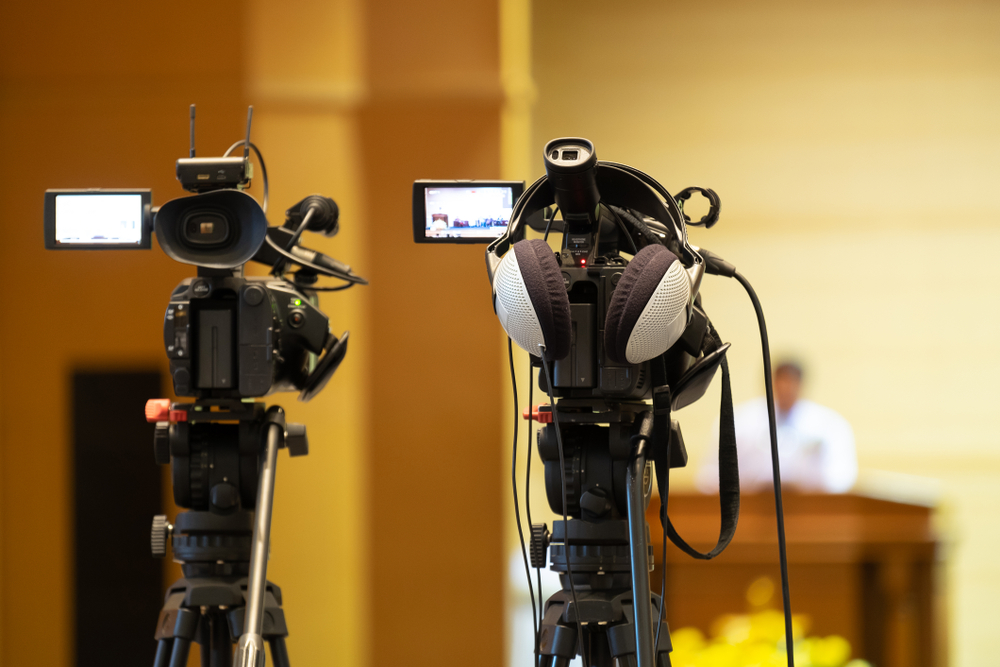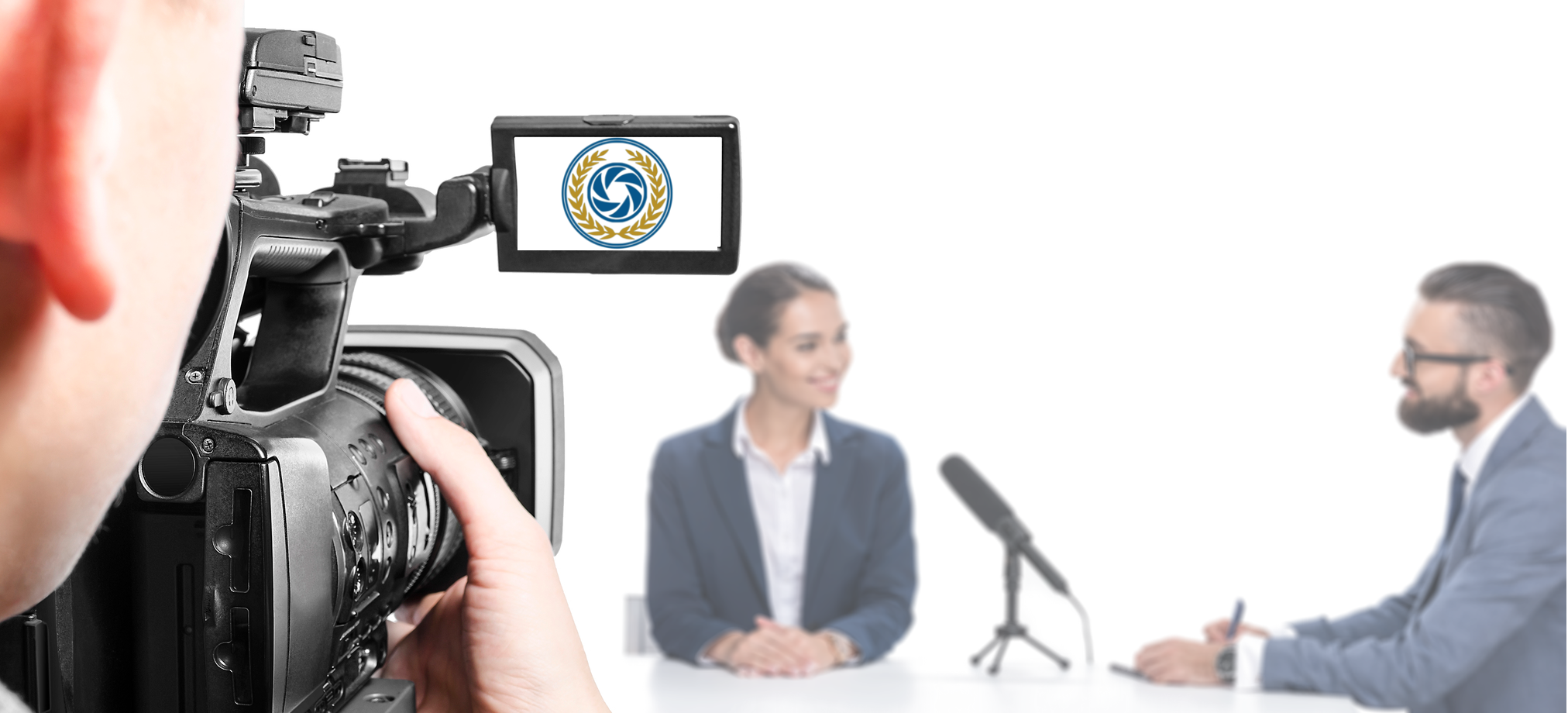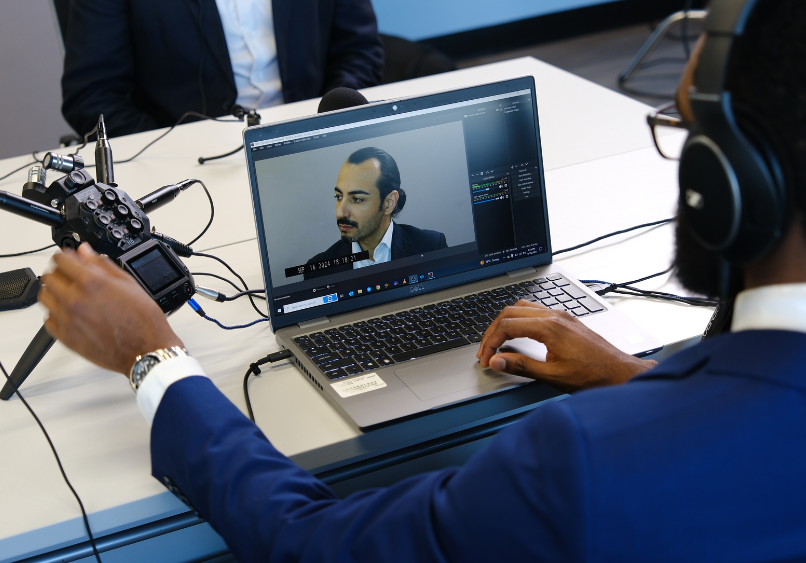The Significance of Legal Video Clip Depositions in Modern Legal Solutions: What You Ought to Know
Lawful video clip depositions have come to be crucial in today's lawful landscape. They offer a multidimensional view of witness testimonies that traditional transcripts just can not match. By catching both spoken and non-verbal communication, these depositions boost the overall understanding of a witness's reputation. The effectiveness of video depositions hinges on numerous elements, consisting of compliance with legal criteria and best practices. Checking out these components reveals their real relevance in modern-day lawful services
What Are Legal Video Clip Depositions?
Legal video depositions act as an important tool in the lawsuits process. They involve taping witness statements in a video clip style, capturing both spoken and non-verbal communication. This technique allows lawyers to record the behavior, expressions, and responses of witnesses, providing a richer context for the testimony. Generally performed in a regulated setting, these depositions are led by attorneys that ask concerns while a stenotype reporter documents the dialogue. The resulting video clip can be vital for trial prep work, as it makes it possible for attorneys to analyze the credibility of witnesses and refine their techniques. Furthermore, lawful video depositions can be made use of in different lawful contexts, varying from civil conflicts to criminal cases. The visual and auditory aspects of video clip depositions improve the presentation of proof, making it a vital element in the modern lawful landscape. On the whole, they contribute considerably to the performance and effectiveness of legal procedures.

Benefits of Video Clip Depositions Over Conventional Methods
Video depositions provide numerous advantages contrasted to typical approaches of taking witness testaments. One significant advantage is the capacity to capture both visual and audio elements, giving a much more extensive document of the witness's declarations. This double format improves clearness and allows lawful specialists to reference particular nuances throughout test prep work. In addition, video clip depositions help with remote involvement, making it less complicated for witnesses that might be unavailable for in-person looks because of geographical constraints or health issues.Moreover, video clip depositions can expedite the general deposition process, lowering the moment and costs connected with traveling and logistics. They likewise boost ease of access, as tape-recorded depositions can be easily shared amongst legal groups and referenced at any kind of time. This benefit contributes to far better instance management and preparation. On the whole, video clip depositions represent a contemporary, efficient strategy to collecting witness testimonies, straightening with the advancing requirements of the legal profession.
The Function of Body Movement and Tone in Testimonies

In legal video clip depositions, body movement and tone play crucial roles in communicating a witness's reputation and credibility. Nonverbal hints can offer understandings right into a witness's mood, influencing just how their testament is regarded. Comprehending the influence of these elements is necessary for jurors and attorneys alike when assessing the reliability of a testament.
Nonverbal Communication Insights
While verbal communication is frequently highlighted in legal testaments, nonverbal signs such as body movement and tone play an important role in sharing reliability and feeling. Onlookers of depositions may note that a witness's stance, gestures, and faces can greatly influence assumptions of reliability. For example, regular eye contact may signify self-confidence, while avoiding gaze can recommend deceit or pain. The tone of voice-- its pitch, quantity, and speed-- can give feelings of genuineness or unpredictability. Lawful professionals have to be attuned to these nonverbal signals, as they frequently provide critical context that complements spoken words. Understanding these subtleties can boost the efficiency of depositions and influence the outcome of lawful procedures.
Emotional Tone Effect
The emotional tone shared throughout lawful testimonies considerably impacts how a witness is perceived. Body language, vocal inflections, and faces play essential duties in forming the narrative of a testament. A witness exhibiting self-confidence with consistent eye contact and a calm tone can infuse a feeling of reliability and interaction. Conversely, indications of anxiety, such as fidgeting or an unstable voice, may lead to skepticism concerning their account. The nuances of psychological expression can influence the interpretation of truths, making it crucial for attorneys to identify these cues. In video depositions, the aesthetic and acoustic components integrate, highlighting the significance of psychological tone in conveying genuineness and truthfulness within the lawful procedure.
Integrity and Reliability
An essential consider developing integrity and reliability throughout testaments lies in the witness's body movement and tone of voice. Viewers typically count on non-verbal hints-- such as eye call, position, and motions-- to assess a witness's sincerity. A witness who keeps eye contact and presents open body language might be regarded as even more sincere and trustworthy than one that avoids eye get in touch with or appears closed off. In addition, intonation plays an important duty; a constant, tranquil tone can enhance the reputation of the testimony, while changes in pitch or volume may increase uncertainties. Eventually, the mix of body language and vocal tone greatly influences exactly how a witness's statements are received and interpreted in a lawful context.
Ideal Practices for Carrying Out Video Depositions
Performing video depositions calls for cautious preparation and execution to guarantee a efficient and clear discussion of statement. It is vital to select a peaceful, well-lit area to lessen interruptions and protected optimum video clip quality. The tools needs to be examined in advance, including cams, microphones, and lighting, to stay clear of technological problems throughout the deposition.Next, celebrations included have to review the style and treatments beforehand, seeing to it that everyone recognizes their functions. The deponent ought to be informed on the procedure, including exactly how to react clearly and concisely.Additionally, maintaining an expert behavior throughout the session is important. This consists of avoiding talking over each other and verifying that all inquiries are routed appropriately. It is crucial to tape the deposition in a style that permits for very easy playback and review, protecting the honesty of the testimony for future use.
Lawful Factors To Consider and Conformity Issues
Exactly how do lawful factors to consider and compliance issues affect the effectiveness of video clip depositions? Lawyers need to navigate an intricate landscape of policies, making certain that video depositions abide by jurisdictional guidelines and standards. Conformity with legislations concerning personal privacy, permission, and videotaping techniques is vital. As an example, acquiring explicit consent from all parties involved is necessary to prevent legal repercussions.Additionally, the admissibility of video clip evidence in court can rest on conformity with step-by-step requirements. Making sure that the devices used meets technological criteria is additionally vital, as poor high quality can weaken the deposition's reliability.Moreover, attorneys should understand any kind of details state legislations that govern video depositions, as these can vary substantially. Failure to resolve these factors to consider can not only jeopardize the stability of the deposition yet also affect the overall instance strategy, inevitably influencing the client's legal outcomes.
How Video Clip Depositions Influence Court Assumption
While video depositions can act as powerful devices in legal proceedings, their impact on jury understanding is substantial. The acoustic and visual elements of video clip recordings supply jurors with a much more complete understanding of witness behavior, integrity, and psychological reactions. This multimedia strategy can improve the jurors' capacity to analyze the integrity of testament compared to conventional text-based transcripts.Moreover, video depositions enable jurors to observe body movement, tone of voice, and face expressions, all of which can impact their analysis of more helpful hints the witness's declarations. The existence of a witness on screen can humanize them, promoting empathy and connection, which might guide jurors' viewpoints. On the other hand, a witness who shows up untrustworthy or evasive on video clip might result in adverse assumptions that influence a jury's decision. Ultimately, the dynamic nature of video depositions plays a vital duty fit how jurors analyze evidence and reach their judgments.
The Future of Video Depositions in Legal Method
As developments in modern technology remain to improve the legal landscape, the future of video clip depositions is positioned for significant development. Technologies such as expert system, digital reality, and boosted video conferencing devices are anticipated to improve the deposition procedure and enhance ease of access. Lawyers may use AI-driven analytics to assess witness integrity and instance stamina a lot more effectively.Moreover, the assimilation of online fact could allow courts to experience immersive simulations of depositions, offering deeper context and understanding. Additionally, the fad toward remote depositions is most likely to continue, using greater flexibility for attorneys and clients alike.As remote work comes to be increasingly stabilized, video clip depositions will likely come to be standard technique, decreasing prices and time constraints connected with typical techniques. Overall, these technical improvements assure to improve the effectiveness, efficiency, and availability of video clip depositions in lawful practice, eventually changing how lawyers prepare for test.
Regularly Asked Inquiries
How Much Do Legal Video Clip Depositions Usually Expense?

Can Video Clip Depositions Be Utilized in Any Type Of Sort Of Instance?
Video clip depositions can be made use of in various kinds of instances, including civil, criminal, and household regulation. Their flexibility allows lawyers to present witness statements efficiently, adjusting to the particular demands of different legal circumstances.
What Equipment Is Required for a Video Clip Deposition?
To perform a video deposition, essential devices consists of a high-grade cam, microphone, lights, and a reputable recording device. Furthermore, a computer system with editing software might be necessary for post-production and formatting the last video.
Just how Long Does a Normal Video Clip Deposition Last?
A regular video clip deposition lasts in between two to 4 hours, depending on the complexity of the situation and the number of check questions posed. Prolonged sessions might happen, yet breaks are generally incorporated for participant comfort.

Are Video Clip Depositions Admissible in Court?
Video clip depositions are usually admissible in court, provided they abide by lawful criteria and guidelines of evidence. Their use enhances clearness and preserves witness testimony, helping in the judicial process throughout trials and hearings. Legal video clip depositions have actually become crucial in today's lawful landscape. Furthermore, legal video depositions can be utilized in numerous lawful contexts, ranging from civil disputes to criminal cases. Furthermore, video depositions promote remote engagement, making it simpler for witnesses who may be unavailable for in-person looks due to geographical restrictions or wellness issues.Moreover, video clip depositions can accelerate the overall deposition procedure, minimizing the time and costs associated with travel and logistics. click reference Making sure that the tools used meets technological criteria is additionally vital, as inadequate quality can weaken the deposition's reliability.Moreover, lawyers have to be aware of any kind of specific state legislations that regulate video clip depositions, as these can differ greatly. Additionally, the fad towards remote depositions is most likely to linger, providing better adaptability for customers and lawyers alike.As remote job ends up being significantly normalized, video depositions will likely end up being common practice, lowering prices and time constraints linked with conventional methods.